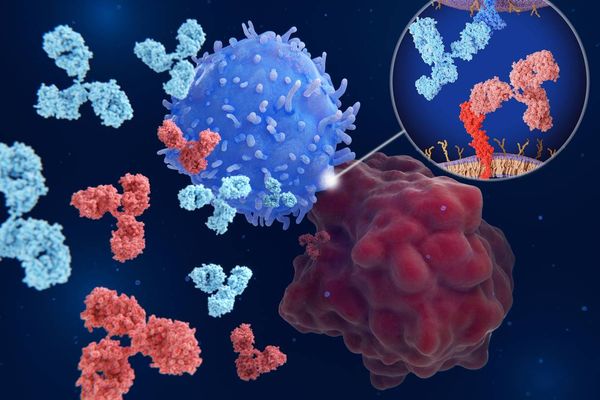An achy bone. Constipation. Severe thirst. While these symptoms might not seem to have anything in common, they can all signify more serious conditions, including Metastatic Bone Disease (MBD).
Many cancers that start in one place can spread (metastasize) to other areas of the body. When it spreads to the bone, it's called MBD.
MBD occurs in both men and women. In women, up to 75% of cases are caused by estrogen receptor (ER) positive breast cancer, which is cancer cells growing in the presence of the hormone estrogen. In men, 65% to 90% of cases originate from prostate cancer. Combined, breast and prostate cancer account for more than 80% of MBD cases, although tumors that originate in the lung, kidney or thyroid can also travel to the bone.
Talk to your health care provider about your symptoms
MBD is considered a common, but very serious complication of cancer that puts patients at risk for skeletal complications that are called skeletal-related events (SREs). These events can reduce quality of life and increase medical costs and risk of death. Therefore, if you have cancer and are experiencing any aches, tenderness or pain that seems localized in a bone, talk to your health care provider right away. In addition to pain, which is often the first symptom of MBD, check for the following symptoms:
- Fractures (pathological bone fractures): Weakened bones can cause fractures resulting from a fall or injury, but also from everyday activities. Pathological bone fractures, however, are caused by disease. Typically occurring in the long bones of the arms and legs, they can cause severe pain.
- Constipation, nausea, loss of appetite, and other symptoms: When calcium from the bones is released into the bloodstream, it can cause constipation, nausea, loss of appetite, confused or altered mental state and severe thirst. High blood calcium levels, also called hypercalcemia, can increase urine production, leading to dehydration, weakness and fatigue.
- Spinal cord compression: Increased growth of cancer in the spine can press against the spinal cord and cause compression of the nerves, leading to numbness and weakness in the lower area of the body, pain or stiffness in the neck, back or lower back, paralysis, trouble with urinating and a lack of bowel movements.
Advocate for yourself to receive proper care
If you're experiencing symptoms related to SREs, ask your health care provider about the following approaches for diagnosis of MBD. Depending on the location and severity of the pain, MBD can be diagnosed by:
- X- Ray or Radiography
- Bone scans
- CT (computer tomography) scans
- MRI (magnetic resonance imaging)
- PET (positron emission tomography)
- Blood test that measures elevated levels of alkaline phosphatase (an enzyme that originates in the bone) and calcium levels to confirm hypercalcemia
- Bone biopsies are performed to confirm MBD
What to do after you’ve received a diagnosis
Getting a diagnosis of MBD can feel scary, but a health care provider can talk with you about your prognosis and available treatment options. Because SREs can significantly impact a patient's quality of life, the primary goal of your treatment will include preventing SREs. Treatment options that are clinically proven include:
- Bone therapies, which involve using bone-targeting agents, a class of drugs that prevent the loss of bone density by reducing the turnover of bone. There are various different types of agents/medications that can reduce fractures and slow the spread of cancer so it is important to ask about your options when speaking with your health care provider.
- Anti-cancer therapies, such as chemotherapy, immunotherapy and hormone therapy, are systemic treatments that affect the whole body. While they are not specifically aimed at MBD, they may be used as a part of your treatment plan.
- Local treatments can be targeted to one specific area of the body that needs attention right away and relieve pain or other symptoms. Types of local treatments can include:
- Radiation therapy
- Surgery
Once you understand all your options, ask your health care provider these key questions:
- Which treatment options will work best for my bone health?
- Are bone-targeting agents a good treatment option for me?
- Will systemic or localized treatments work better for me?
- What side effects will I experience with these treatments?
- How will these treatments improve my quality of life?
No matter the prognosis you're given, just know that being proactive is the first step.
Learn more about MBD by visiting the American Cancer Society, Komen Foundation, National Cancer Institute and the Prostate Health Education Network.
This resource was created with support from Amgen Inc.
- Clinically Speaking: Questions and Answers About Metastatic Cancer ›
- Where Metastatic Breast Cancer Can Spread in the Body ›
- True or False? Breast Cancer ›
- The Link Between Breast Cancer and Bone Health ›






